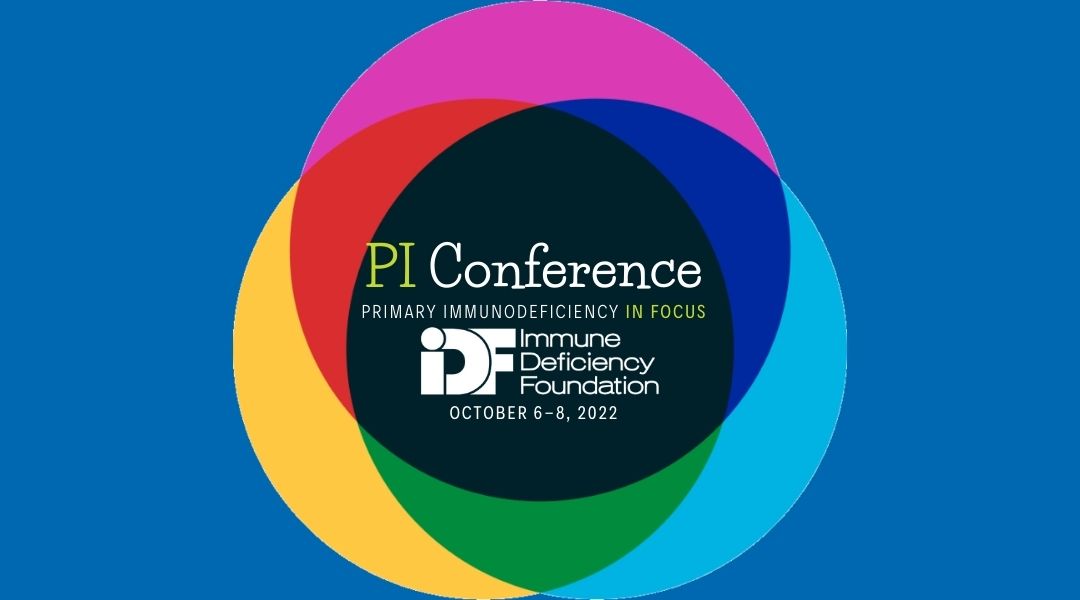
-
Understanding primary immunodeficiency (PI)

Understanding PI
The more you understand about primary immunodeficiency (PI), the better you can live with the disease or support others in your life with PI. Learn more about PI, including the various diagnoses and treatment options.
-
Living with PI
-
Addressing mental health
-
Explaining your diagnosis
- General care
- Get support
- For parents and guardians
-
Managing workplace issues
- Navigating insurance
-
Traveling safely

Living with PI
Living with primary immunodeficiency (PI) can be challenging, but you’re not alone—many people with PI lead full and active lives. With the right support and resources, you can, too.
-
Addressing mental health
-
Get involved

Get involved
Be a hero for those with PI. Change lives by promoting primary immunodeficiency (PI) awareness and taking action in your community through advocacy, donating, volunteering, or fundraising.
-
Advancing research and clinical care
-
Research Grant Program
-
Consulting immunologist
-
Diagnosing PI
-
Getting prior authorization
-
Clinician education
-
Survey research
-
Participating in clinical trials

Advancing research and clinical care
Whether you’re a clinician, researcher, or an individual with primary immunodeficiency (PI), IDF has resources to help you advance the field. Get details on surveys, grants, and clinical trials.
-
Research Grant Program
When Dr. Joud Hajjar started her career as a clinical immunologist several years ago, she noticed that patients with primary immunodeficiency (PI) struggled with extreme fatigue.
“Patients always said they were tired, not just from a bad night’s sleep, but a mom would tell me she can’t get out of bed to help her kids get ready for school or a man says I need to be on disability because I can’t work and I thought, ‘This is really serious,’” said Hajjar at the 2019 Immune Deficiency Foundation PI Conference in a presentation, “Fatigue, Pain, and PI: What do we know?”

Hajjar is returning to the 2022 IDF PI Conference where she’ll delve further into the subject in her presentation, “Battling Fatigue,” set for 12 pm ET on Oct. 7, during the three-day virtual event, which runs Oct. 6-8.
Hajjar, an assistant professor of medicine in the section on immunology, allergy, and rheumatology at Baylor College of Medicine and Texas Children’s Hospital, will discuss how fatigue is often reported by people in the PI community and she’ll present data related to the estimated prevalence, risk factors, and causes of fatigue. She’ll also explore what is being done to improve the quality of life for those who struggle with fatigue.
In her 2019 presentation, Hajjar shared that based on a study of patient data collected by IDF’s USIDNET and subsequent quality of life survey of adult patients with common variable immunodeficiency disorders (CVID), as well as a study on fatigue and the wear-off effect in adult patients with CVID, researchers learned that:
Prevalence of fatigue is higher in persons with primary immune disorders (PID), especially CVID
Fatigue affects all ages
Fatigue is higher in those who use intravenous immunoglobulin (IVIG) therapy because the Ig levels drop, or wear off, more sharply than in subcutaneous immunoglobulin therapy (SCIG)
Wear-off effect is dependent on infusion intervals
Fatigue is higher in CVID with non-infectious complications
Fatigue affects quality of life
During the 2019 conference, Hajjar said that providers should pay close attention to fatigue because it could be an early clinical sign of something else going wrong in the body, particularly for a person with CVID. The underlying problems could be non-infectious complications found in CVID such as bronchiectasis and other chronic lung conditions, gastrointestinal disease, autoimmunity, malignancy, and inflammation.

In particular, Hajjar said that she and her colleagues wanted to study the composition of the microbes in the gut of a person with CVID because they hypothesized that these microbes are driving inflammation. Inflammatory signals then go to the blood, cross into the brain, and cause people to feel fatigued.
To that end, in May 2022 IDF awarded Hajjar with a grant to study the relationship between the gut microbiome, which is the collection of microorganisms that live in the human digestive tract, and inflammation in CVID.
“If we identify that there are specific bacteria that are failing to be bound by immunoglobulins because [IgG products] come from healthy donors…can we enrich immunoglobulin products with specific antibodies or even monoclonal antibodies that…target specific bacteria that we think that they should not be present?” remarked Hajjar.
Topics
Sign up for updates from IDF
Receive news and helpful resources to your cell phone or inbox. You can change or cancel your subscription at any time.





The Immune Deficiency Foundation improves the diagnosis, treatment, and quality of life for every person affected by primary immunodeficiency.
We foster a community that is connected, engaged, and empowered through advocacy, education, and research.
Combined Charity Campaign | CFC# 66309



